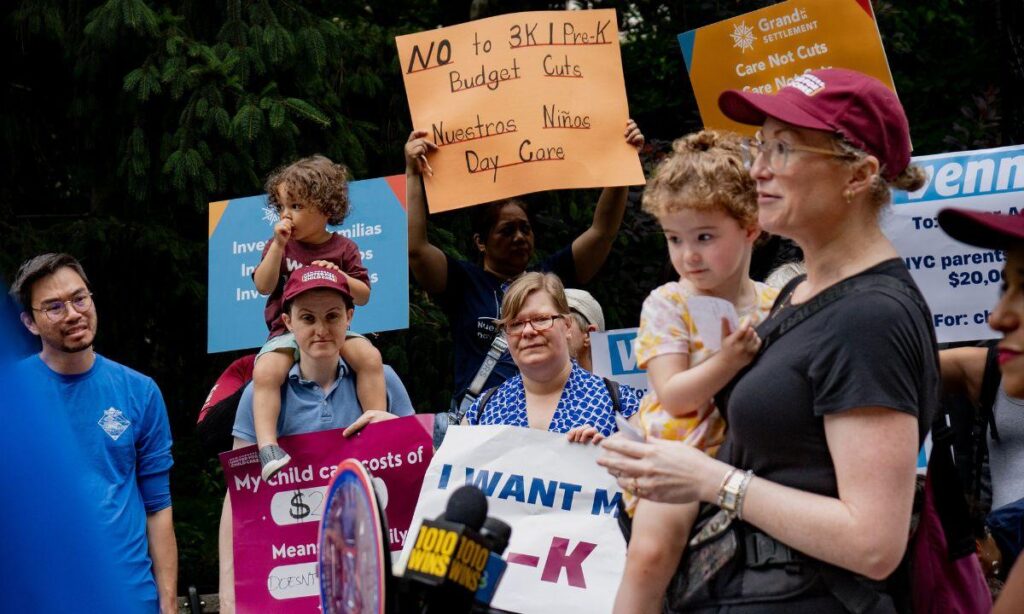New York City’s Journey Toward Universal Childcare: A Model for Inclusive Early Education
Addressing Childcare Shortages Across Boroughs: A Comprehensive Expansion Strategy
New York City is actively confronting the critical shortage of childcare services in many underserved neighborhoods by implementing a comprehensive plan aimed at increasing both availability and convenience. This approach involves strengthening collaborations between public agencies and private entities, encouraging the development of new childcare facilities in areas historically lacking such resources, and introducing flexible hours to meet the varied schedules of working families. By partnering with local nonprofits and faith-based organizations, the city is building a trusted network of affordable childcare options tailored to the distinct lifestyles of each borough.
Key elements of this borough-wide expansion include:
- Dedicated funding to renovate existing centers and enhance workforce capabilities in neighborhoods with limited childcare access.
- Targeted outreach initiatives to ensure immigrant and marginalized populations are informed about available childcare services.
- Progressive zoning reforms that streamline licensing for small-scale providers while upholding rigorous safety standards.
| Borough | Existing Childcare Facilities | Planned New Sites (Next 2 Years) | Expected Growth (%) |
|---|---|---|---|
| Bronx | 120 | 45 | 38% |
| Brooklyn | 210 | 60 | 29% |
| Manhattan | 150 | 35 | 23% |
| Queens | 180 | 50 | 28% |
| Staten Island | 70 | 20 | 29% |
Securing Sustainable Funding: Combining Local Budgets with Federal Support
The momentum behind New York City’s universal childcare vision is fueled by a strategic blend of municipal investments and federal funding streams. The city has earmarked more than $300 million in recent fiscal plans to enhance childcare infrastructure, expand subsidy programs, and invest in educator training. These funds are integral to the city’s broader economic recovery efforts, underscoring a long-term dedication to making early childhood education both accessible and affordable.
On the federal level, New York City leverages resources from initiatives such as the American Rescue Plan and the Child Care and Development Block Grant. This partnership supports:
- Matching grants that encourage innovative childcare delivery models.
- Technical support to help providers meet compliance and quality benchmarks.
- Data-driven oversight to maximize the impact and transparency of funding use.
| Funding Source | Annual Budget | Main Application |
|---|---|---|
| NYC Local Budget | $300M+ | Facility upgrades & Educator development |
| American Rescue Plan | $125M | Subsidies & Emergency childcare support |
| Child Care Block Grant | $50M | Quality assurance & Compliance |
Building a Skilled Childcare Workforce: Tackling Staffing Shortages with Training and Support
Central to the success of New York City’s universal childcare agenda is addressing the ongoing shortage of qualified caregivers. The city has launched comprehensive workforce development programs that not only teach essential childcare skills but also emphasize cultural sensitivity and trauma-informed care, ensuring providers are prepared to meet the diverse needs of children. Collaborations with community colleges and vocational institutions create a steady pipeline of trained professionals, while continuous education initiatives promote ongoing excellence in care.
Highlights of the workforce development approach include:
- Financially supported certification and training courses to reduce entry barriers for new caregivers.
- Mentorship programs that provide hands-on learning and peer guidance.
- Competitive compensation packages designed to improve retention and job satisfaction.
- Flexible work arrangements to attract a broader range of candidates, including parents balancing work and family.
| Training Program | Length | Certification Awarded |
|---|---|---|
| Foundations of Early Childhood Education | 8 weeks | Certified Caregiver Credential |
| Cultural Awareness & Inclusion | 4 weeks | Certificate of Completion |
| Trauma-Informed Care Practices | 6 weeks | Specialized Care Endorsement |
Innovative Policies for Equitable and Affordable Childcare
New York City’s universal childcare efforts are underpinned by forward-thinking policies that emphasize inclusivity and financial accessibility. A multi-layered funding framework reduces the economic strain on families, particularly those from low-income and marginalized backgrounds. By weaving together public funds, private investments, and philanthropic contributions, the city is crafting a resilient childcare ecosystem that flexibly responds to the varied financial realities of its residents.
Core policy features include:
- Income-based sliding scale fees that promote fairness without sacrificing quality.
- Expanded subsidy programs aimed at lowering out-of-pocket costs for economically vulnerable families.
- Community-led program design ensuring childcare services reflect cultural and local needs.
- Robust investments in workforce development to maintain a high standard of care.
| Funding Source | Percentage Contribution | Intended Use |
|---|---|---|
| City Budget | 45% | Operational expenses and subsidies |
| Federal Grants | 25% | Program growth and workforce training |
| Philanthropic Support | 20% | Innovation projects and community engagement |
| Private Sector Partnerships | 10% | Facility improvements and technology upgrades |
Conclusion: Paving the Way for a More Equitable Childcare Future
As New York City advances toward the goal of universal childcare, the strides made so far highlight a transformative shift in how early childhood education is valued and supported. Despite ongoing challenges, the unified efforts of government leaders, advocates, and community members demonstrate a strong commitment to ensuring that every family can access affordable, high-quality childcare. This initiative not only alleviates financial pressures on parents but also fosters a more inclusive and equitable urban environment. New York’s evolving model offers valuable insights for other metropolitan areas aiming to close the childcare gap, proving that comprehensive, community-centered strategies can build a brighter future for the city’s youngest citizens.













